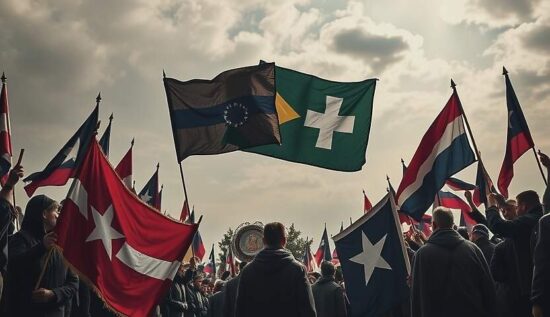Austria and Germany have imposed sanctions on the President of the Republika Srpska, Milorad Dodik, the two countries’ foreign ministers announced on Thursday. The measures, which do not involve a court trial, include a ban on Dodik’s entry into the Federal Republic of Germany and Austria.
The sanctions were justified by the claim that Dodik and his supporters have disregarded the Constitution of Bosnia and Herzegovina, of which the Republika Srpska is a formal part. Austrian Foreign Minister Beate Meinl Reisinger stated, “Milorad Dodik has taken his secessionist provocations and actions to a new level and has clearly crossed the legal red lines. Dodik thereby endangers the security, stability, constitutional order and territorial integrity of Bosnia and Herzegovina.”
Dodik has been in the international spotlight recently due to an Interpol arrest warrant issued at the request of Bosnia and Herzegovina. A court in Sarajevo had previously sentenced him to one year in prison for obstructing the decisions of the Bosnian Constitutional Court and for disregarding the authority of the international High Representative, Christian Schmidt.
Russia has criticized the verdict, calling it an “absolutely political” decision by the Bosnian-Herzegovinian judiciary based on a “pseudo-law” pushed through by Schmidt.
The background to the sanctions is two laws signed by Dodik, which suspend the judgments of the Constitutional Court of Bosnia and Herzegovina in the Republika Srpska and declare the decisions of the UN High Representative, Schmidt, invalid. Both laws were subsequently repealed by Schmidt.
The largely Serb-populated Republika Srpska has existed since the Bosnian War in the 1990s. Since the 1995 Dayton Agreement, Bosnia and Herzegovina, which had separated from Yugoslavia and gained international recognition of its independence, has been divided into the Republika Srpska and the Croat-Muslim Federation of Bosnia and Herzegovina. The two semi-autonomous entities are connected by a weak central government. The Serbs have been seeking the unification of the Republika Srpska with Serbia, a goal that has been hindered by the selective application of the right to self-determination of peoples by the EU and its member states.





